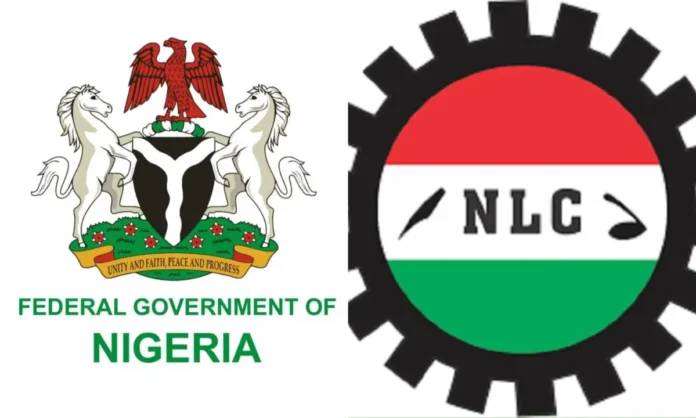ABUJA: The Federal Government has agreed to refund deductions made from the Employees’ Compensation Scheme managed by the Nigeria Social Insurance Trust fund (NSITF), in a bid to douse tensions with the Nigeria Labour Congress (NLC) and avert a nationwide strike.
The NLC had accused the government of diverting 40 per cent of workers’ compensation funds into the national treasury, warning that the action undermined workers’ welfare and social protection.
The union demanded an immediate refund and the reconstitution of the National Pension Commission (PenCom) board, threatening industrial action if its demands were ignored.
The Employees’ Compensation Scheme is designed to provide financial support for employees in cases of work-related injuries, illnesses, disabilities, or death.
It is funded solely by employer contributions, typically one per cent of payroll, without any deductions from employees’ salaries.
Read also:
- NLC, TUC Condemn Tinubu’s Declaration of State of Emergency in Rivers State, Demand Reversal
- New minimum wage, Labour, FG in talks-Comrade Osifo, TUC President
- Nigeria Police Accept To Have Raided On Labour House But Not Targeted At NLC Secretariat
In a letter to the NLC dated August 16, 2025, NSITF Managing Director Oluwaseun Faleye admitted that deductions were made but explained they were part of a December 2023 federal policy requiring government-owned enterprises to remit half of their internally generated revenue to the treasury.
He noted, however, that workers’ contributions being statutory liabilities were no longer subject to such deductions after a March 2024 directive from the accountant-General of the Federation. Some of the earlier deductions, he added, had already been reversed.
We have been assured that no further deductions will be made from workers’ contributions or investment proceeds, the NSITF said, adding that engagements were ongoing with the Ministry of Finance and the Budget Office to resolve outstanding issues.
The NLC confirmed receipt of the letter but said its executive council would review the response before deciding on strike action.
Assistant General Secretary Christopher Onyeka insisted that NSITF, as a tripartite body of workers, employers, and government, should not be treated as a revenue-generating agency.
The contributions are meant to compensate workers during injury or loss. They are not government revenue and should never be used for fiscal purposes,” Onyeka stressed.
The NLC also criticised the government’s delay in reconstituting PenCom’s Governing Board, describing it as a violation of the Pension Reform Act 2014 and a threat to proper oversight of workers’ retirement savings.
The last PenCom board was dissolved in June 2023, along with other federal parastatal boards. While some have since been reconstituted, PenCom’s governing body remains incomplete.
Industry experts, including Ivor Takor of the Centre for Pension Rights Advocacy, backed the NLC’s call, saying the absence of the board weakens accountability, even though pension funds themselves remain secure.
The Nigeria Employers’ Consultative Association (NECA) also supported the demand, warning that the prolonged delay undermines confidence in pension regulation.
NSITF further denied claims that its proposals to amend the Employees’ Compensation Act were aimed at weakening workers’ rights, insisting that the changes were intended to strengthen compliance and enforcement against defaulting employers.
Meanwhile, labour leaders have vowed to continue monitoring developments, stressing that protecting workers’ funds is non-negotiable.



